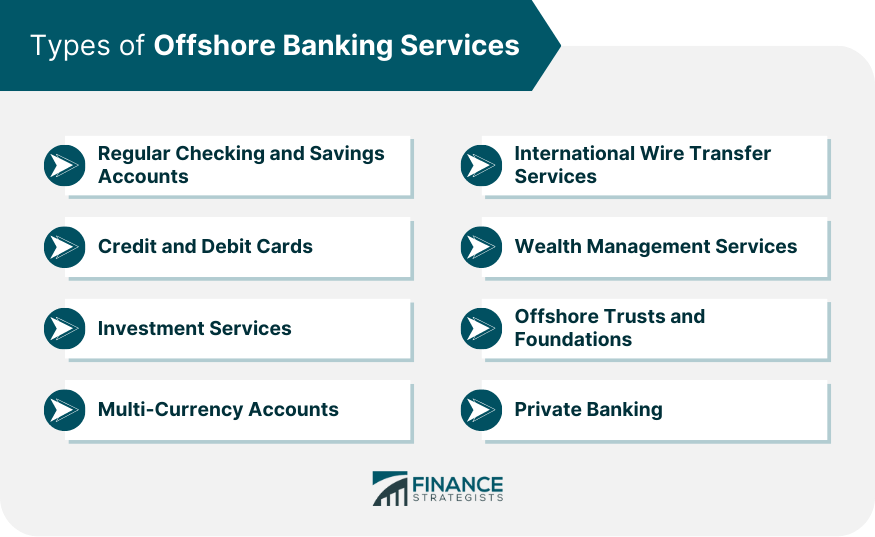Exactly How Offshore Firm Formations Job: A Step-by-Step Summary for Business Owners
Offshore firm formations can offer considerable advantages for business owners looking for tax obligation optimization and property defense. The procedure involves several crucial actions, starting with cautious territory option and complete documentation preparation. Engaging expert solutions is vital for compliance. Nonetheless, many overlook the recurring responsibilities that adhere to first registration. Comprehending these intricacies can make a substantial distinction in leveraging offshore opportunities properly. The following actions are necessary for long-term success.
Comprehending Offshore Firms: What They Are and Why They Issue
The principle of overseas firms might appear complex, recognizing their basic nature and value is crucial for both people and businesses seeking to enhance their monetary methods. Offshore companies are entities registered outside the individual's country of home, commonly in territories that supply positive governing atmospheres. These businesses can give different advantages, such as tax obligation optimization, asset defense, and boosted personal privacy.
For business owners, establishing an offshore company can facilitate worldwide profession, reduce functional expenses, and broaden market reach. In addition, offshore business usually permit streamlined conformity with global guidelines. People might likewise use overseas frameworks to protect individual possessions from political or economic instability in their home nations. Inevitably, the charm of overseas firms exists in their capacity to improve economic versatility and give strategic benefits in a progressively interconnected worldwide economic situation - Offshore Company Formations. Comprehending their functional framework and advantages is important for making informed decisions
Choosing the Right Territory for Your Offshore Business
Choosing the appropriate jurisdiction for an overseas firm is essential for taking full advantage of tax obligation advantages and guaranteeing conformity with regional laws. Various jurisdictions use differing tax incentives and regulatory settings that can substantially affect service operations. A careful assessment of these variables is crucial for informed decision-making.
Tax Obligation Benefits Summary
When thinking about the establishment of an offshore company, comprehending the tax advantages connected with numerous territories is crucial. Different places supply one-of-a-kind advantages, such as low or no corporate tax obligation rates, which can considerably improve success. Some jurisdictions supply tax obligation rewards for specific kinds of services, attracting entrepreneurs looking for minimized tax obligation liabilities. Additionally, particular nations impose favorable tax obligation treaties that lessen double tax on global income, making certain that businesses keep more earnings. The selection of territory likewise impacts value-added tax obligation (VAT) and other local taxes. Business owners should review these variables carefully to pick an area that lines up with their organization goals, enhancing tax performance while remaining certified with global regulations.
Regulatory Setting Considerations
Selecting the best territory for an overseas firm calls for an extensive understanding of the governing setting, as different nations enforce differing degrees of compliance and administration. Entrepreneurs should evaluate variables such as legal frameworks, tax laws, and reporting obligations. Territories like the British Virgin Islands and Cayman Islands are commonly preferred for their business-friendly laws and minimal reporting needs. On the other hand, some nations might impose stringent laws that can complicate procedures and boost costs. Furthermore, the political stability and reputation of a territory can affect the long-lasting practicality of the overseas company. Mindful consideration of these regulatory facets is vital to assure that the chosen territory straightens with the firm's operational needs and calculated objectives.
Functional Preparing the Necessary Documentation
Preparing the necessary documents is a crucial action in the offshore business formation process. Entrepreneurs have to collect various legal and identification files to promote their business's establishment in an international territory. Usually, this consists of a thorough organization strategy outlining the company's goals and functional techniques. Furthermore, personal identification records, such as tickets or driver's licenses, are called for from the firm's supervisors and investors.
Oftentimes, evidence of address, like energy expenses or financial institution statements, is essential to confirm the identities of the included celebrations. In addition, details kinds dictated by the territory, including application types for enrollment, have to be finished accurately. Some territories may also call for a statement of the nature of service tasks and compliance with neighborhood guidelines. Extensively preparing these documents assures a smoother registration process and assists minimize prospective delays or issues, eventually setting a solid foundation for the overseas entity.
Involving Specialist Providers for Offshore Formation
Engaging expert services in overseas development can considerably enhance the performance and effectiveness of the procedure. Business owners frequently face intricacies that can be overwhelming, making skilled advice important. Professional firms focusing on overseas formations supply a wealth of understanding regarding jurisdiction choice, firm structure, and local market conditions.
These experts can aid in drafting vital paperwork, guaranteeing precision and compliance with details demands. They additionally assist simplify interaction with regional authorities, reducing the chance of delays or misunderstandings. In enhancement, specialist services can provide insights right into critical benefits, such as tax benefits and possession defense, tailored to the entrepreneur's certain requirements.
Navigating Regulatory Compliance and Legal Needs
Recognizing the governing landscape is essential for business owners beginning on offshore business formations. Compliance with local laws and global regulations is vital to stay clear of lawful risks. Each jurisdiction has certain needs pertaining to business registration, reporting, and taxation, which must be thoroughly researched.
Entrepreneurs need to acquaint themselves with the guidelines governing company structure, ownership, and functional methods in the chosen offshore location. Furthermore, anti-money laundering (AML) and know your consumer (KYC) guidelines commonly apply, requiring correct documentation and confirmation procedures.
Involving with lawyers who focus on overseas services can supply invaluable advice on steering through these intricacies. Ensuring compliance not just shields the company from possible legal concerns but additionally improves credibility with companions, regulatory authorities, and investors. By adhering to the recommended lawful structures, business owners can efficiently take advantage of the benefits of offshore firm formations while lessening risks related to non-compliance.
Setting Up Banking and Financial Accounts

As soon as an ideal bank is identified, entrepreneurs commonly require to prepare and submit various records, including evidence of identification, organization registration records, and a description of the desired organization activities. (Offshore Company Formations)
Some financial institutions may additionally need a minimal deposit to open up look at this now an account. Business owners ought to be prepared to address concerns regarding the source of funds and service procedures. By completely understanding the banking landscape and following the bank's needs, business owners can safeguard their offshore business has smooth access to important financial solutions for efficient procedure.
Maintaining Your Offshore Company: Continuous Responsibilities and Ideal Practices
Preserving an overseas business includes a number of continuous responsibilities that are vital for compliance and operational stability. Trick aspects include sticking to annual conformity needs, maintaining exact economic records, and recognizing tax commitments. These components are vital for making sure the business's durability and legal standing in its territory.
Yearly Compliance Demands
While establishing an offshore company uses countless benefits, it additionally requires recurring duties that can not be overlooked. Annual compliance requirements vary by territory however typically consist of sending monetary statements and yearly returns to local authorities. Business have to likewise pay annual costs, which can include registration renewals and tax obligations, depending on the location. On top of that, many jurisdictions require preserving a neighborhood agent and an authorized workplace. Failing to abide by these guidelines can cause charges, including fines or perhaps dissolution of the firm. Entrepreneurs need to likewise be mindful of any changes in neighborhood legislations that may influence their compliance responsibilities. Remaining notified and organized is vital for maintaining the advantages of an overseas firm while meeting legal responsibilities successfully.
Preserving Financial Records
Conformity with annual needs is just component of the continuous responsibilities linked with offshore firm administration. Preserving exact economic documents is essential for ensuring openness and accountability. Entrepreneurs need to methodically record all transactions, consisting of revenue, costs, and possessions. This practice not only aids in interior decision-making but also prepares the company for potential audits from regulatory authorities.
Regularly upgrading financial declarations, such as revenue and loss accounts and equilibrium sheets, is vital for tracking the company's economic wellness. Making use of accountancy software application can enhance this procedure, making it simpler to produce reports and maintain conformity. Additionally, business owners ought to take into consideration seeking expert bookkeeping services to ensure adherence to regional policies and best techniques, consequently guarding the honesty and online reputation of their overseas operations.

Tax Obligations Summary
Steering through the complexities of tax obligations is important for the successful management of an offshore company. Business owners have to understand the tax obligation policies of both their home nation and the territory where the overseas entity is developed. Compliance with neighborhood tax laws is important, as failure to stick can bring about charges or lawful issues. Consistently submitting required income tax return, also when no tax obligation may be owed, is often required. Furthermore, maintaining updated and accurate economic records is imperative for demonstrating conformity. Inquiring from tax experts acquainted with international tax obligation legislation can aid navigate these commitments effectively. By executing ideal methods, entrepreneurs can ensure that their overseas operations stay legitimately compliant and monetarily practical.

Regularly Asked Questions
Exactly how Long Does the Offshore Firm Formation Process Generally Take?
The overseas firm development procedure usually ranges from a couple of days to numerous weeks. Variables affecting the timeline include territory, paperwork demands, and responsiveness of lawful and monetary establishments associated with the arrangement.
What Are the Costs Linked With Preserving an Offshore Company?
The prices associated with maintaining an overseas company can vary widely. They generally consist of annual registration costs, compliance prices, accounting services, and possible lawful costs, depending upon the territory and certain business tasks involved.
Can I Open a Personal Bank Account for My Offshore Firm?
Opening up a personal financial institution account for an overseas company is generally not permitted. Offshore accounts have to be organization accounts, showing the firm's activities, thus conforming with regulations and making sure correct monetary monitoring and legal liability.
Are There Limitations on International Ownership of Offshore Firms?

What Happens if I Fail to Follow Offshore Laws?
Failure to adhere to offshore regulations can lead to extreme penalties, including substantial penalties, loss reference of company licenses, and possible criminal charges. Furthermore, non-compliance might result in reputational damages and troubles in future business procedures.
Offshore firms are entities registered outside the individual's country of house, usually in jurisdictions that offer positive regulatory atmospheres. Picking the appropriate jurisdiction for an offshore firm is critical for maximizing tax benefits and guaranteeing conformity with neighborhood laws. When considering the establishment of an offshore business, comprehending the tax advantages associated with numerous territories is essential. Picking the appropriate jurisdiction for an overseas firm needs a comprehensive understanding of the regulative environment, as different countries impose varying levels of compliance and governance. Furthermore, the political stability and credibility of a jurisdiction can affect the long-lasting practicality of the offshore firm.